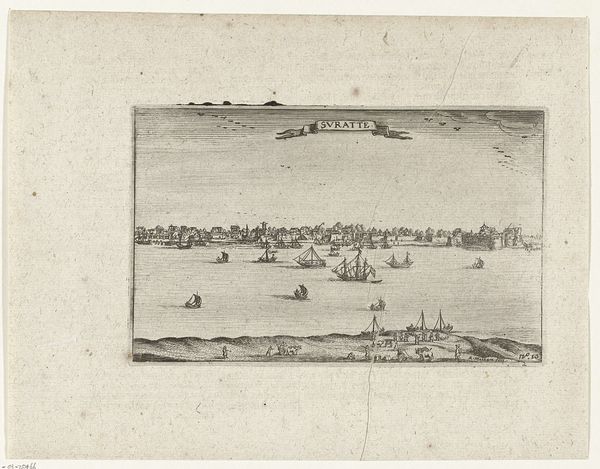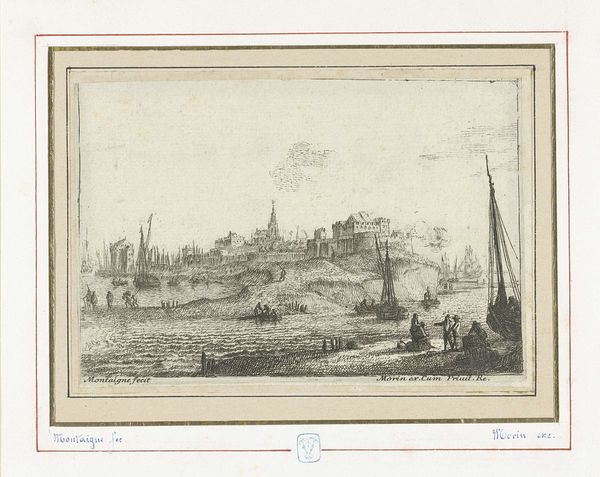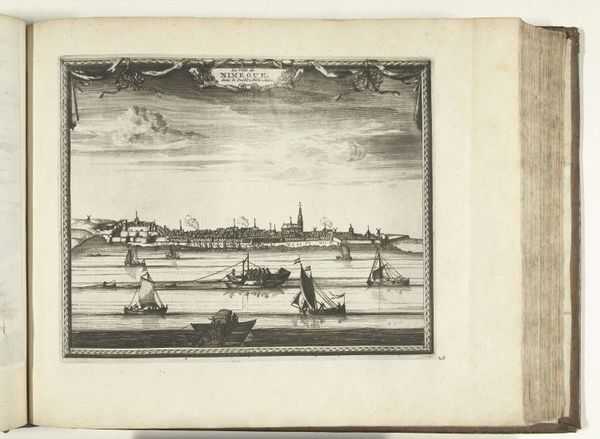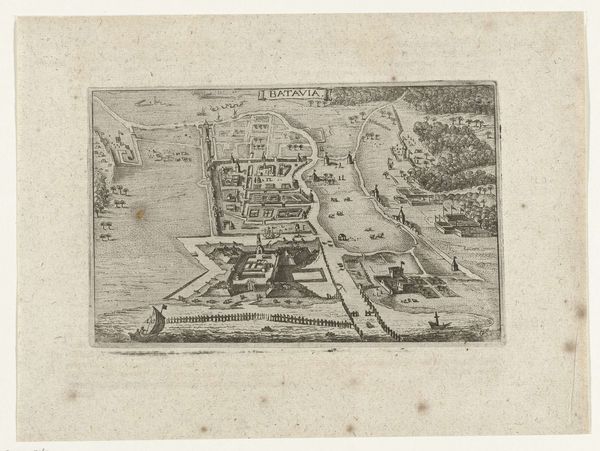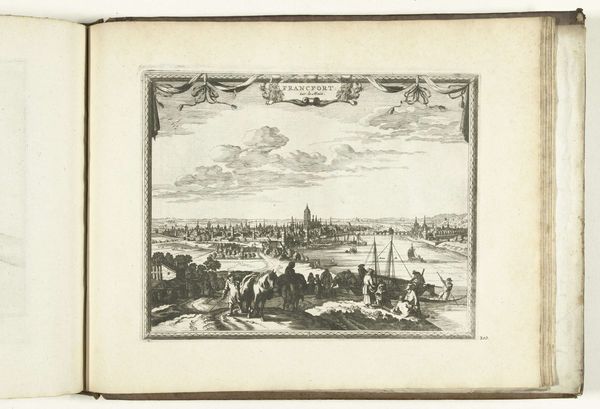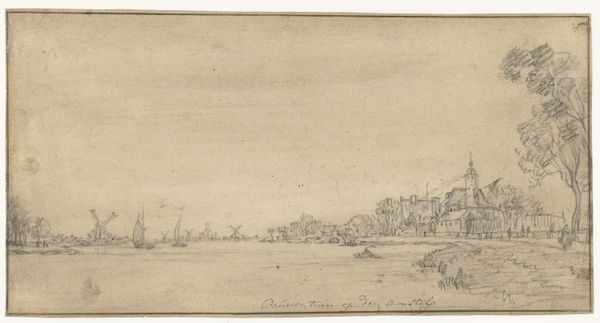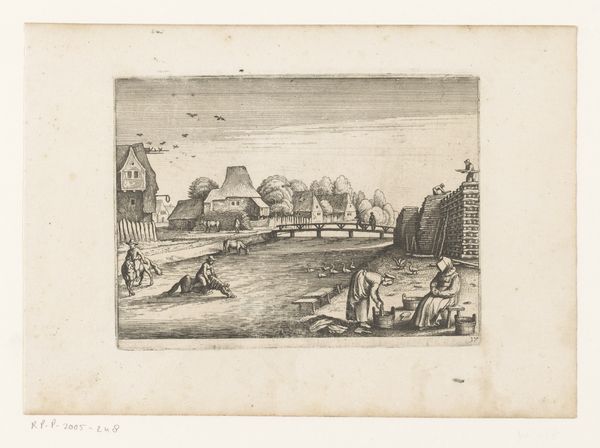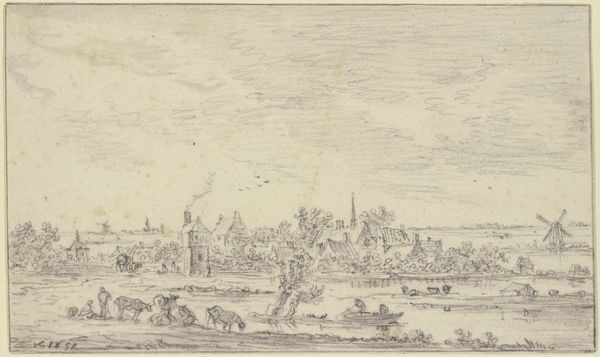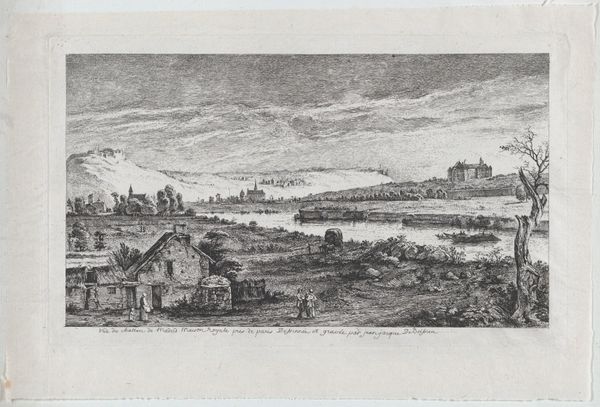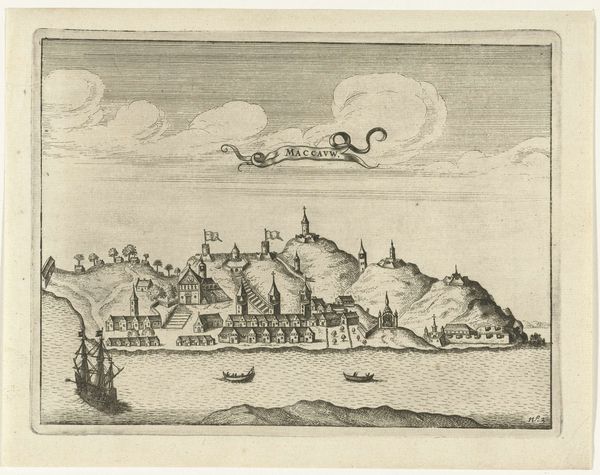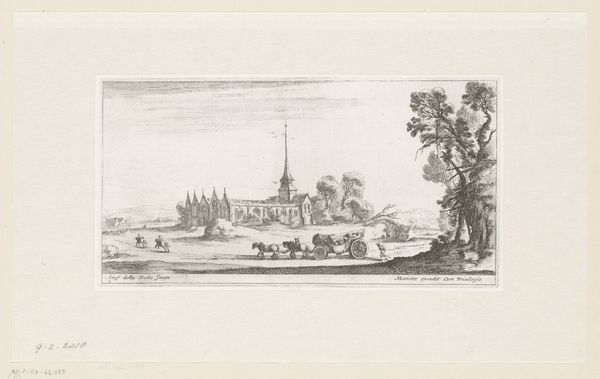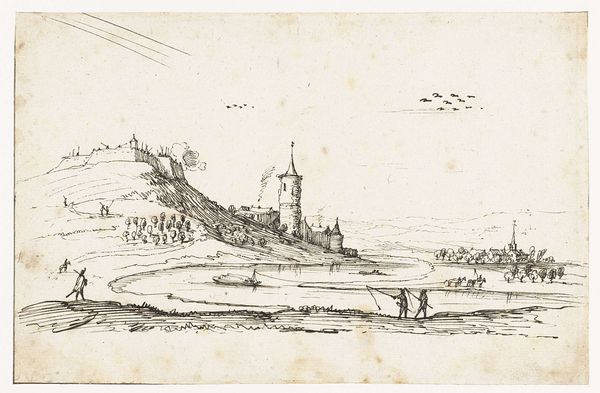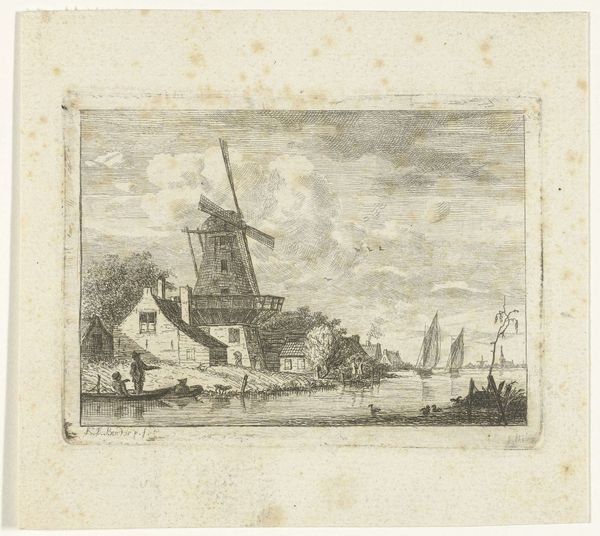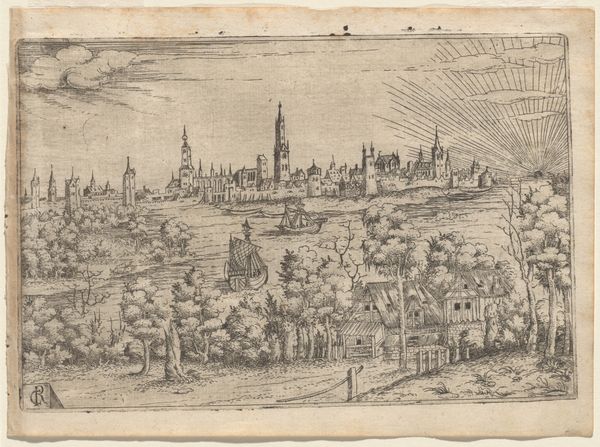
print, etching, engraving
#
dutch-golden-age
# print
#
etching
#
landscape
#
cityscape
#
engraving
Dimensions: height 105 mm, width 170 mm
Copyright: Rijks Museum: Open Domain
Adriaen Matham created this print of the harbor of Mocha in 1616 using engraving, a process by which lines are incised into a metal plate, which is then inked and printed. Engraving was the perfect medium to capture the detail of this busy port. Look closely, and you’ll see how the crisscrossing lines create a sense of depth and texture, from the rippling water to the stone buildings. The process is labor-intensive, demanding precision and control. Yet, the resulting prints could be reproduced in multiples, making images accessible to a wider audience. Mocha, now in Yemen, was once a vital hub for the coffee trade. The Dutch East India Company, for whom Matham worked, had a vested interest in this port city. Prints like this one served not only as documentation but also as tools of propaganda, promoting Dutch commercial power. It's a reminder that even seemingly straightforward images are deeply entwined with economic and political forces. Matham’s technical skill, combined with the reproducible nature of printmaking, made it possible to disseminate this view of Mocha far and wide.
Comments
No comments
Be the first to comment and join the conversation on the ultimate creative platform.
